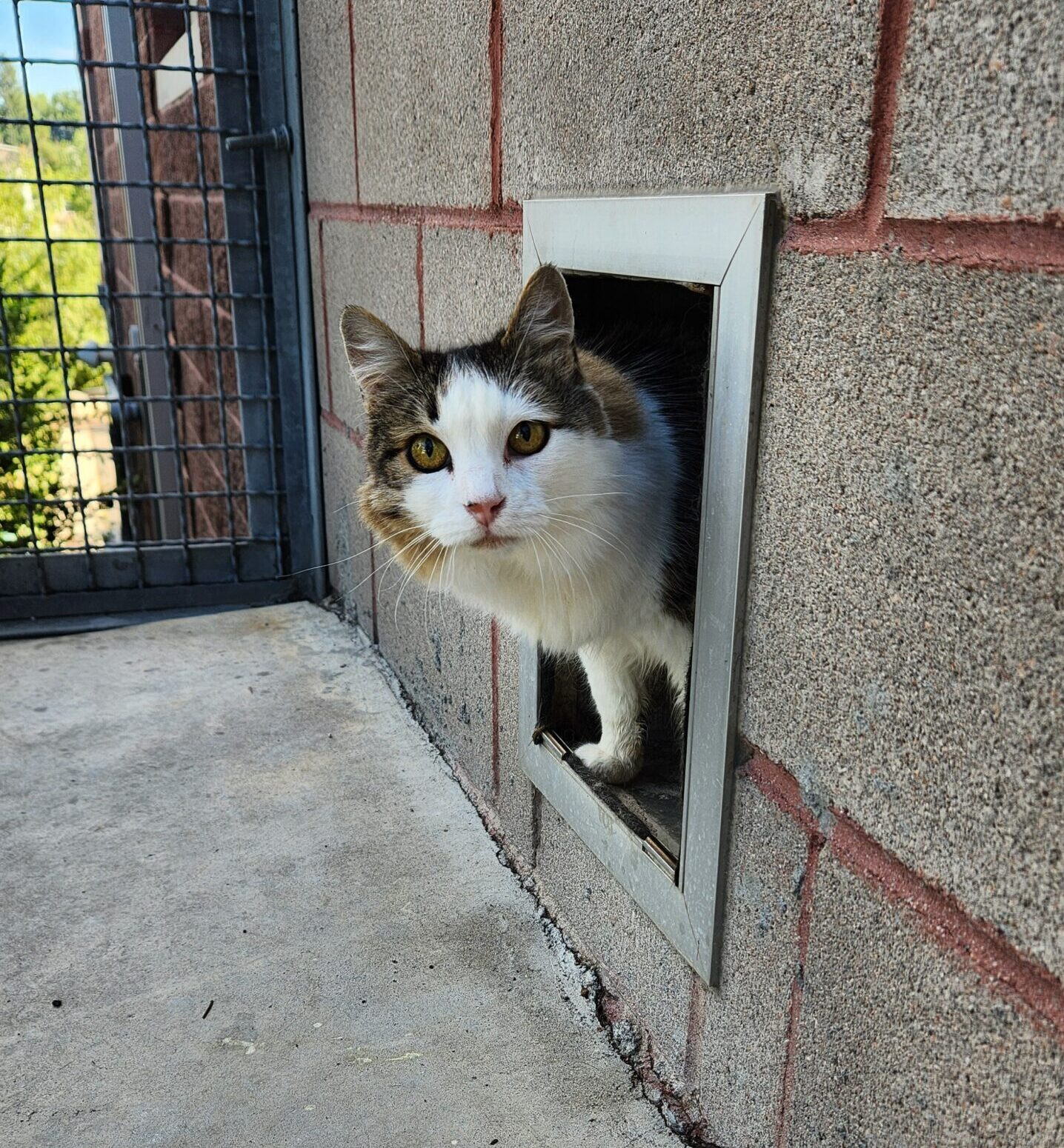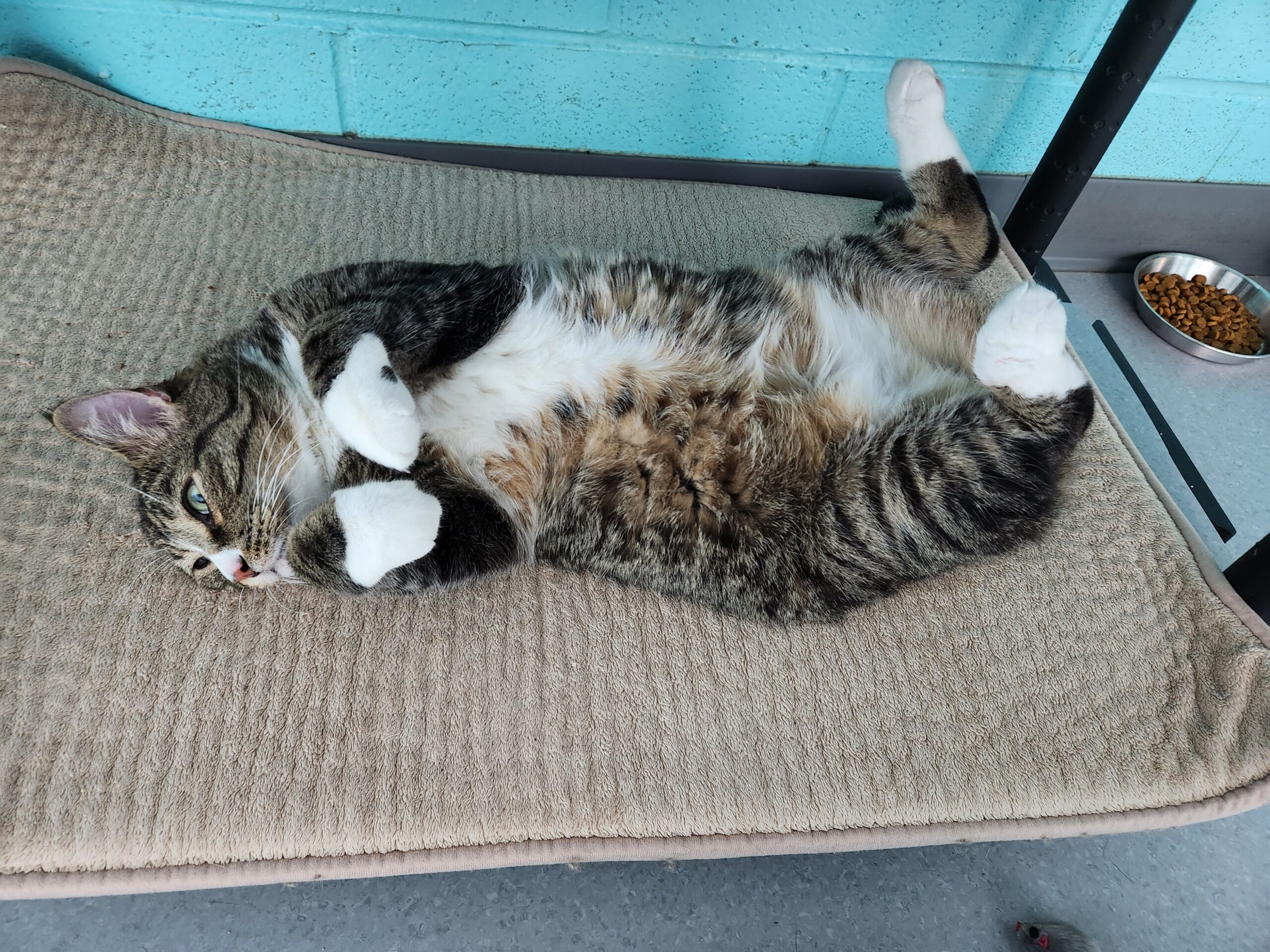Colorado stands as a beacon for animal welfare, underpinned by the Pet Animal Care Facilities Act (PACFA). Since its inception in 1994, PACFA has been instrumental in safeguarding the health, safety, and overall well-being of animals within pet care facilities, simultaneously protecting consumers seeking pet-related services. For organizations like the Cat Care Society, PACFA isn’t just a regulation—it’s a framework that reinforces our commitment to providing exceptional care.
Whether it’s an animal shelter like the Cat Care Society, a grooming salon, a breeding facility, or a rescue organization, PACFA licensing is a legal mandate for anyone providing animal care in Colorado. This comprehensive state law establishes stringent standards designed to ensure animals in licensed facilities receive the proper attention they deserve. Through continuous updates and diligent inspections, PACFA elevates animal welfare, positioning Colorado as a leader in this crucial area. In this article, we will delve into the extensive reach of PACFA, clarify its limitations, and emphasize its significance for pets and their owners throughout Colorado, particularly highlighting the role of organizations like the Cat Care Society.
 A cozy cat enclosure with a cat resting inside
A cozy cat enclosure with a cat resting inside
Exploring the Expansive Scope of PACFA
PACFA, Colorado’s dedicated state law, meticulously governs companion animal care facilities, ensuring animals are treated with the respect they deserve and reside in environments conducive to their physical and emotional well-being. The animals protected under PACFA’s umbrella are diverse, including cats, dogs, birds, guinea pigs, mice, rats, hamsters, gerbils, ferrets, rabbits, reptiles, amphibians, and fish. This broad coverage demonstrates PACFA’s commitment to animal welfare across species.
One of PACFA’s most commendable attributes is its thoroughness and meticulous detail. The regulations span a wide array of crucial aspects of animal care. Below are key areas covered by PACFA, demonstrating its comprehensive approach. It’s important to note that specific requirements are tailored to the particular animal type, recognizing the diverse needs of each species.
- Animal Housing and Enclosures: PACFA dictates appropriate enclosure size based on animal species, size, and duration of stay, specifies suitable materials, and mandates cleanliness and sanitation protocols.
- Food and Water: Regulations cover the proper storage of food and water, suitable serving containers, continuous access, and rigorous sanitation practices to maintain hygiene.
- Facility Standards: PACFA sets standards for safe building materials, water quality, lighting, air quality, temperature control, secure enclosures, sanitation, and overall facility maintenance, ensuring a safe and healthy environment.
- Outdoor Access and Environment: Guidelines are provided for outdoor access, considering environmental safety and suitability for different animals.
- Animal Separation Protocols: PACFA outlines when animals must be separated based on behavior, facility type, age, quantity, and species, minimizing potential conflicts and ensuring individual needs are met.
- Animal Supervision: Adequate animal supervision is mandated to ensure prompt response to any animal needs or emergencies.
- Veterinary Care and Disease Control: PACFA requires access to veterinary care and implementation of disease control measures to safeguard animal health.
- Transportation of Animals: Safe and humane transportation protocols are established to minimize stress and injury during animal transport.
- Adoption and Sale Regulations: PACFA sets guidelines for adoption and sale, including age and weight considerations to protect young animals.
- Care for Pregnant and Nursing Animals: Specific environment and care standards are in place for pregnant and nursing animals to ensure the well-being of both mothers and offspring.
- Foster Care Requirements: PACFA extends its reach to foster care, setting standards for temporary care environments.
- Contingency Planning: Facilities are required to have contingency plans in place for natural disasters and other emergencies, ensuring animal safety during unforeseen events.
- Proactive Behavior and Enrichment Plans: PACFA promotes proactive behavior management and enrichment plans to enhance animals’ psychological well-being.
- Recordkeeping: Detailed recordkeeping for each animal in care is mandated, ensuring accountability and traceability.
PACFA Compliance and Oversight: Ensuring Accountability
The Colorado Department of Agriculture (CDA) is the governing body responsible for enforcing PACFA regulations. This oversight ensures that every organization involved in pet care operates with transparency, accountability, and a genuine commitment to the animals entrusted to their care. To obtain and maintain a PACFA license, facilities, including shelters like the Cat Care Society, rescues, pet stores, and groomers, must undergo stringent inspections, consistently meet specific criteria, and submit annual reports.
PACFA’s licensing program is more than just administrative procedure; it’s a cornerstone of animal welfare protection. By holding a PACFA license, facilities publicly commit to upholding essential standards for animal housing, health, and safety, all under the CDA’s watchful eye. These standards are periodically updated to reflect advancements in animal care practices, requiring shelters and rescues to remain adaptable and current with evolving regulations. Moreover, PACFA licensees are mandated to complete continuing education every two years, ensuring they stay abreast of the latest PACFA standards and best practices. This commitment to ongoing learning further strengthens the quality of animal care across Colorado.
Distinguishing Between Animal Shelters, Rescues, and Sanctuaries
While the terms shelter, rescue, and sanctuary are often used interchangeably in casual conversation, the Colorado Department of Agriculture provides precise legal definitions for each, clarifying their distinct roles within animal welfare. These classifications are outlined in the Rules and Regulations Pertaining to the Administration and Enforcement of the Pet Animal Care and Facilities Act (8 CCR 1201-11). Cat Care Society (CCS) operates as a private non-profit animal shelter, reliant on community support and not receiving government funding. Understanding these distinctions is crucial for anyone involved in or supporting animal welfare.
- Animal Rescue: Defined as any entity that accepts pet animals with the primary goal of finding permanent adoptive homes, and crucially, does not maintain a central facility for housing animals. Rescue organizations typically rely on foster networks.
- Animal Shelter Facility: Encompasses any entity, public or private, that houses pet animals for impoundment purposes, or a centralized, private facility that takes in or houses pet animals, exclusively dedicated to their care and housing according to PACFA rules. Cat Care Society falls under this definition.
- Animal Sanctuary Facility: A subcategory of “animal shelter,” defined as a private facility that provides long-term refuge for pet animals, is not used for impoundment, and is not exclusively for the purpose of caring for or housing pet animals for adoption in the traditional sense. Sanctuaries often house animals that are not considered adoptable for various reasons.
Understanding PACFA’s Limitations
It’s important to recognize that PACFA’s role is distinct from animal control or direct animal protection in certain contexts. Municipal animal control units are responsible for enforcing local and state ordinances primarily related to private pet ownership, such as dog licensing, leash laws, handling lost and found pets, and addressing cases of animal cruelty or neglect within private homes. However, PACFA staff may collaborate with local animal control if animal cruelty or neglect is discovered within a licensed facility.
Furthermore, PACFA is legally obligated to report any instances of animal cruelty or neglect to local law enforcement or the Colorado Bureau of Animal Protection (BAP). BAP plays a vital role in animal welfare by conducting outreach and education programs to prevent neglect and mistreatment of domestic and companion animals across Colorado. They also investigate complaints and work to enforce relevant animal protection laws.
PACFA’s oversight does not extend to the licensure of veterinarians or veterinary technicians. The State Board of Veterinary Medicine, within Colorado’s Department of Regulatory Medicine, is the dedicated body responsible for regulating, licensing, and registering veterinarians and veterinary technicians within the State of Colorado. This separation of responsibilities ensures specialized expertise in each domain of animal well-being.
Cat Care Society: Setting a Higher Standard in Cat Care
Since 1981, Cat Care Society has operated with a clear and heartfelt mission: to provide every cat with the highest standard of care until they find their loving forever homes. We are not only fully compliant with PACFA’s comprehensive standards, but we actively embrace the evolving research and best practices that underpin these regulations. This proactive approach reflects our unwavering dedication to continuously enhancing the care we provide to every cat who comes through our doors. However, our commitment extends beyond mere compliance. At Cat Care Society, we firmly believe that every cat, regardless of age, health status, or special needs, deserves a safe, enriching, and loving environment.
From developing individualized care plans tailored to each cat’s unique needs to implementing robust behavioral enrichment programs and fostering a dedicated team of volunteers and foster families, Cat Care Society consistently strives to exceed PACFA’s requirements. We are committed to ensuring that every cat in our care is living its best possible life while with us. This includes providing a free-roaming environment within our shelter, allowing cats to express their natural behaviors and socialize, and going above and beyond in the thorough evaluation and care of senior cats and those with special medical needs. We are dedicated to determining and providing the most effective course of treatment and compassionate care for every cat, embodying the spirit of PACFA and elevating it to new heights.
 A tabby cat lying on its back, exposing its belly
A tabby cat lying on its back, exposing its belly
The Profound Importance of PACFA and Organizations Like Cat Care Society
PACFA’s significance extends far beyond simply enforcing rules and regulations. It is about cultivating a culture of responsibility, compassion, and consistent high standards throughout the entire pet care sector in Colorado. By ensuring that every individual and organization involved in caring for animals adheres to these elevated standards, PACFA provides a crucial guarantee: every cherished pet receives the focused attention, robust safety measures, and abundant love they rightfully deserve.
At Cat Care Society, love is at the heart of everything we do—our deep love for cats and our unwavering dedication to upholding the core values that PACFA instills within the animal welfare community. Working in harmony with PACFA’s guidance and framework, we are steadfast in our commitment to making Colorado an even better and safer place for animals, one contented purr at a time.
Empowering Informed Choices with PACFA and Cat Care Society Resources
We share a collective desire for all animals to be treated with respect, kindness, and exceptional care. To support responsible pet ownership and informed decision-making, we strongly encourage you to utilize the valuable resources available through PACFA and organizations like Cat Care Society. When selecting a pet care service, we recommend consulting the PACFA Active Facilities List. This list allows you to verify that a facility is licensed and in good standing with PACFA regulations. The CDA website also offers a wealth of detailed information on their website, including comprehensive data, frequently asked questions, and the complete PACFA legislation document.
Here at Cat Care Society, we champion transparency and open communication. On our dedicated About Us page, you can find in-depth details about our cat care protocols, our latest impact report highlighting our achievements, our strategic plan guiding our future endeavors, and a wealth of other information. Furthermore, to assist pet owners in finding trusted services, we provide an extensive list of recommended pet service providers on our comprehensive Resources page. By utilizing these resources, you can make informed choices that prioritize the well-being of your beloved pets and support organizations dedicated to ethical and compassionate animal care like the Cat Care Society.
*About the Author**: Beth Dokolasa is a dedicated volunteer at Cat Care Society and actively serves on the Board of Directors. Professionally, she is an instructional developer for Natural Grocers. Beth resides in Indian Hills, Colorado, with her family, including her husband, daughter, and their two feline companions, Techno and Digit.*
